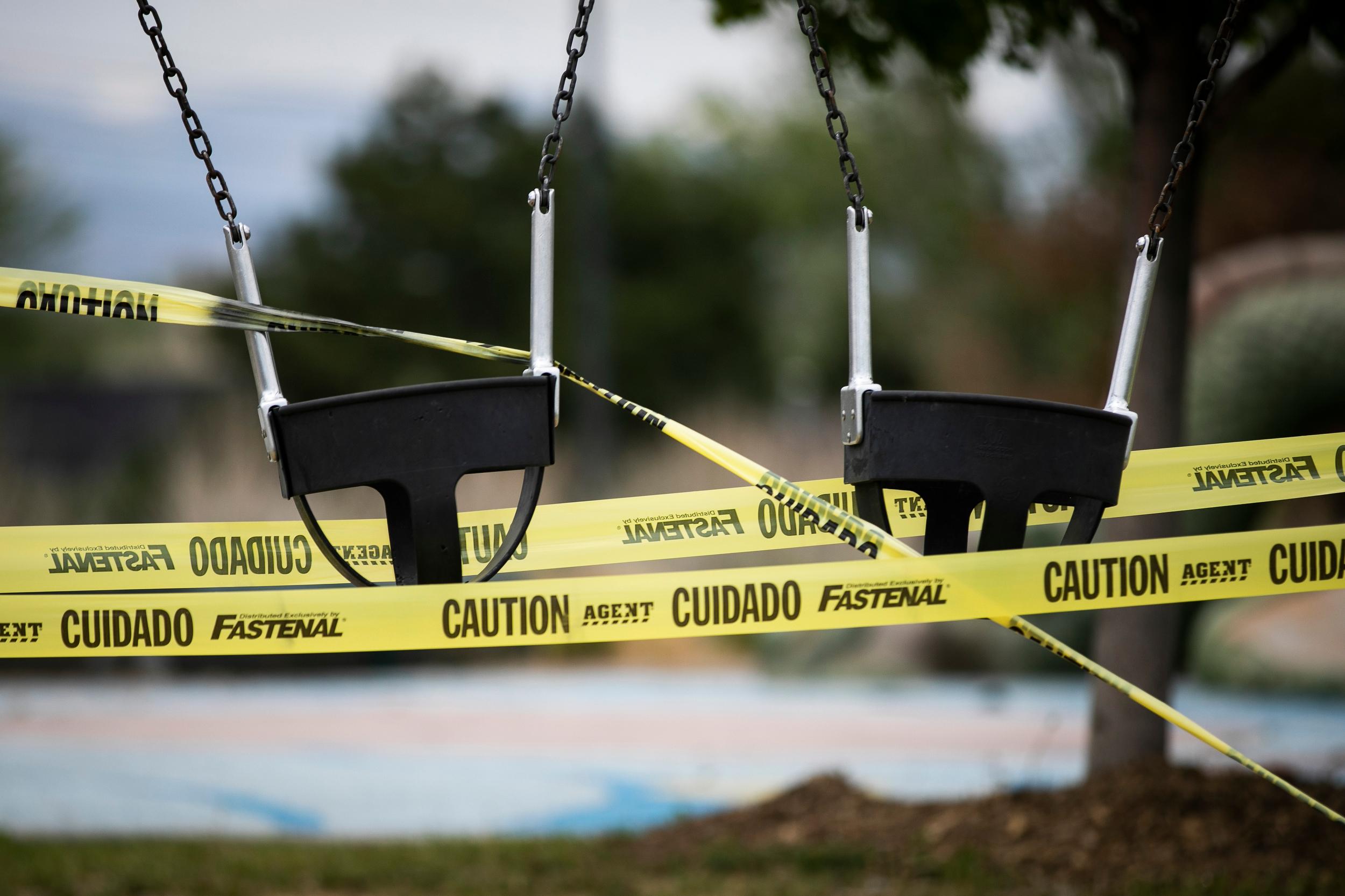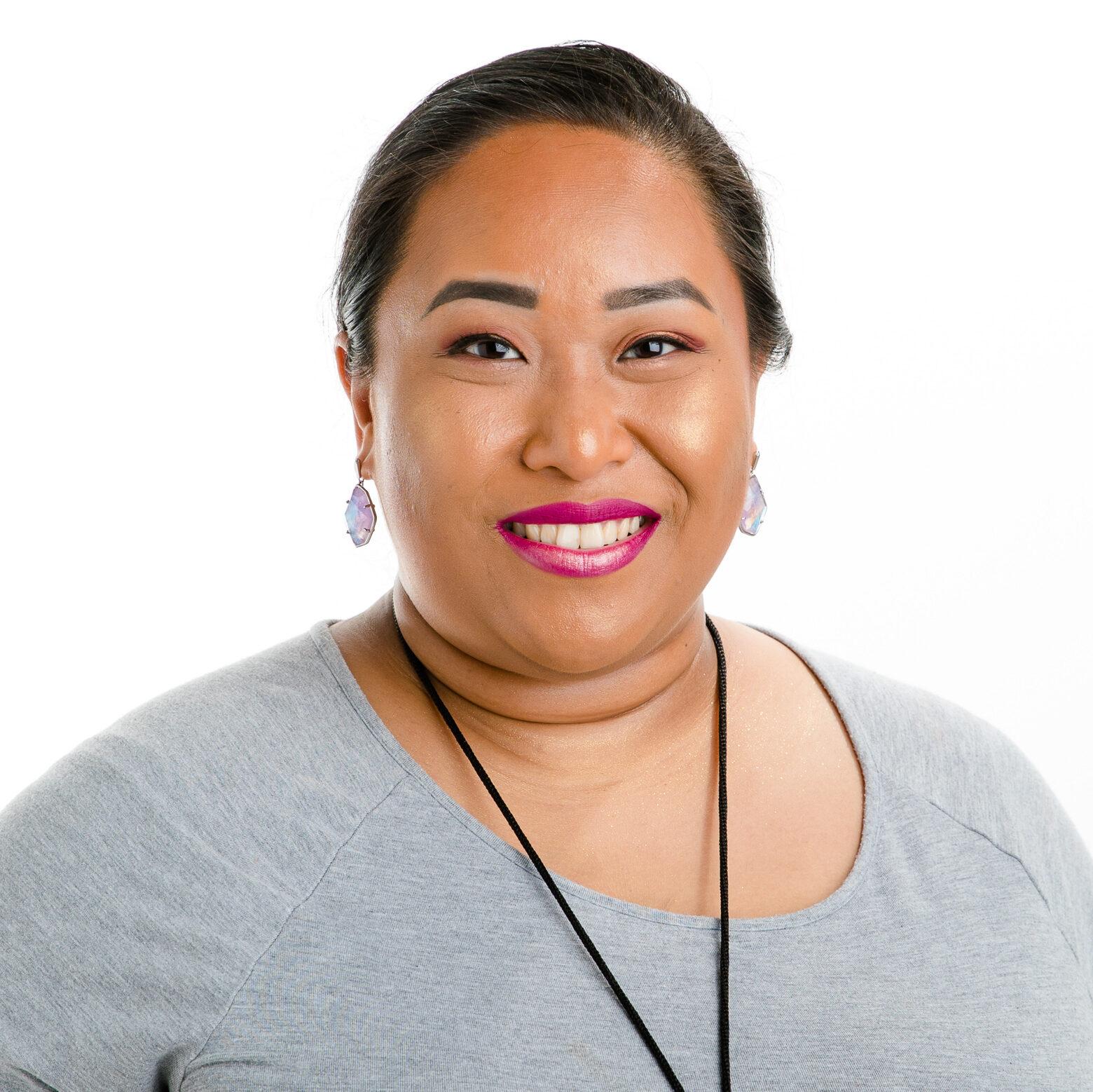
A gunman opened fire in an elementary school in Uvalde, Texas on Tuesday, killing 19 children and two adults. The horrific event happened just two weeks after another gunman killed 10 people in a supermarket in Buffalo, New York. These are just the two most recent tragedies in more than 200 mass shootings that have taken place in the United States so far this year.
In the wake of these terrifying events, parents and children are struggling to come to terms with the violence. Parents are also trying to figure out how to protect their children’s mental health, as well as their own, as the country grieves for the deaths of so many.
Dr Jenna Glover, a child and adolescent psychologist at Children’s Hospital, joined Colorado Matters to answer questions from parents submitted over Twitter. She gave advice for how to talk about gun violence and also how to help parents and children cope with their own emotions.
Should I avoid talking about gun violence with my children?
In short, no. “A lot of times, we want to avoid these conversations because they're hard,” said Dr. Glover. “We don't want to [raise the topic] incorrectly, and we don't want to make it worse.” But, just opening up the conversation is a good first step.
“It doesn’t really matter where you begin or how you begin, what matters is that you do begin,” said Dr. Glover. For very young children, the conversation should touch on the basics: “‘Somebody hurt people. That makes us sad, and we’re going to talk about how we stay safe as a family,’” she said. But, she continued, inviting older children and adolescents to have an open discussion about what they have heard and how they are feeling is appropriate.
What age should I start talking to my children about gun violence?
Generally, Dr. Glover doesn’t recommend talking to very young children about these types of events. However, if a child hears about an event on the news or through a conversation, it’s important to address it directly, such as saying, “‘Something terrible happened. Somebody hurt other people and we feel sad about that, but we’re here to keep you safe,’” said Dr. Glover.
It’s important to talk to young school-age children because of the likelihood that they will hear about an event from their friends or on the news. “When we don't address things that kids are hearing about that are scary,” said Dr. Glover. “It increases their fear that something must be terribly wrong if my parents aren't talking to me about this.”
Dr. Glover said it’s OK for parents to begin talking to their first- and second-graders about events, but urges parents to do it in a “direct way that provides very simple information and reassurances.” And as children get older, it’s important to continue having these conversations.
How can I reassure my children?
First, gauge your child’s emotional state before launching into reassurance or giving them information. Start by asking them how they feel and what they know about the event. “Open the door for them to share their perspective first,” said Dr. Glover. That way, “you have a jumping off point” and can let them guide the conversation.
As an adult, you will likely have a range of reactions to a violent event like a mass shooting. It’s important for you to first talk to other adults, such as a significant other, a friend group, a therapist or colleagues, about your grief and fears. “Do that before you talk to your kids and then ground yourself in the facts,” said Dr. Glover. “Because even though this seems like it is happening all the time — and it is happening way too much — the reality is the probability of a school shooting happening to your child is incredibly unlikely.” While there is a lot of work to be done, schools are statistically safe places for children to be.
How should I deal with my grief in ways that don’t alarm my children?
It’s important to take the time to express your full spectrum of emotions in response to a traumatic event. Those emotions may take the form of anger or sadness, and “parents need to be able to go and talk about these things,” said Dr. Glover. “But it might not be helpful to our children to express our full range of anger and fear.”
Dr. Glover cautions against the impulse to stay connected in the wake of a tragedy like the shooting in Uvalde, Texas. “One of the ways that some of us cope is we want to constantly consume anything and everything about this to try to understand it,” she said. “But it's so important to take breaks and turn off the TV, turn off social media and just be present with your family.” Keeping a regular routine and engaging in positive activities is key to maintaining balance. “Some exposure is helpful; over exposure is dangerous,” she said.
Do active shooter drills at school and at home help or hurt?
Practicing safety procedures and drills are a helpful way to give children a sense of security. “It is important for students to go through drills in the rare event that something might happen,” said Dr. Glover. “Because it arms them with information of: this is what we can do if the worst possible happens.”
However, Dr. Glover cautions that it is important to balance preparation with the fact that encountering an active-shooter situation or a fire is unlikely.
Is there anything I should be watching out for in my children’s behavior after events like this?
Over the next two weeks, parents should look for any changes in diet, sleep and mood that last for more than a couple of days.
Pay attention to whether your child backs away from their normal activities or friends. “It's normal for kids to withdraw a little bit from their parents at different times,” said Dr. Glover. “But if they're withdrawing from friends or other things: that would be a cause for concern.”
Another sign to look for is increased irritability: “if it seems like your kid just goes off very easily and stays angry longer than it makes sense for the situation,” said Dr. Glover. If the irritability lasts for a few days, “those are some of the things that would be concerning.”
Finally, pay attention to how much time your child is spending on social media — if they have it — and what they’re posting. Ask them about what they’re seeing or what they’re posting, said Dr. Glover, “because depending on what they're looking at, that can also increase risk factors for kids.”
How can I help build resilience in my children?
There are three pillars that can help your children cope with a range of events, according to Dr. Glover. The first is maintaining a consistent diet and sleep schedule. “We know that when kids aren't sleeping well or eating well, their ability to regulate their emotions really goes out the door,” she said.
The second pillar is ensuring children engage in positive and fun activities. “Despite really difficult things, we know that increasing positive emotions builds up that tank,” she said. “So, when these stressful events draw down on that, there's stuff in the tank to draw from.”
The third pillar is keeping a consistent routine, such as when you wake up and when you eat. “When these things happen, they shock our sense of safety and they disrupt our sense of normality,” said Dr. Glover. “So, one of the things [that] can help recalibrate our system is through those routines.” This is especially important over the summer when children may not have the same school routine.
Resources for parents and children in Colorado
- Children’s Hospital Colorado Tips for Coping With Current Events
- Colorin Colorado: 15 Tips for Talking with Children About Violence
- American Psychological Association
- Colorado Child Fatality Prevention
- Mental Health Colorado
- Colorado Crisis Services
- General Reference Point: Colorado School Safety Resource Center
- Cómo hablar con los niños cuando las noticias dan miedo. Una guía bilingüe









